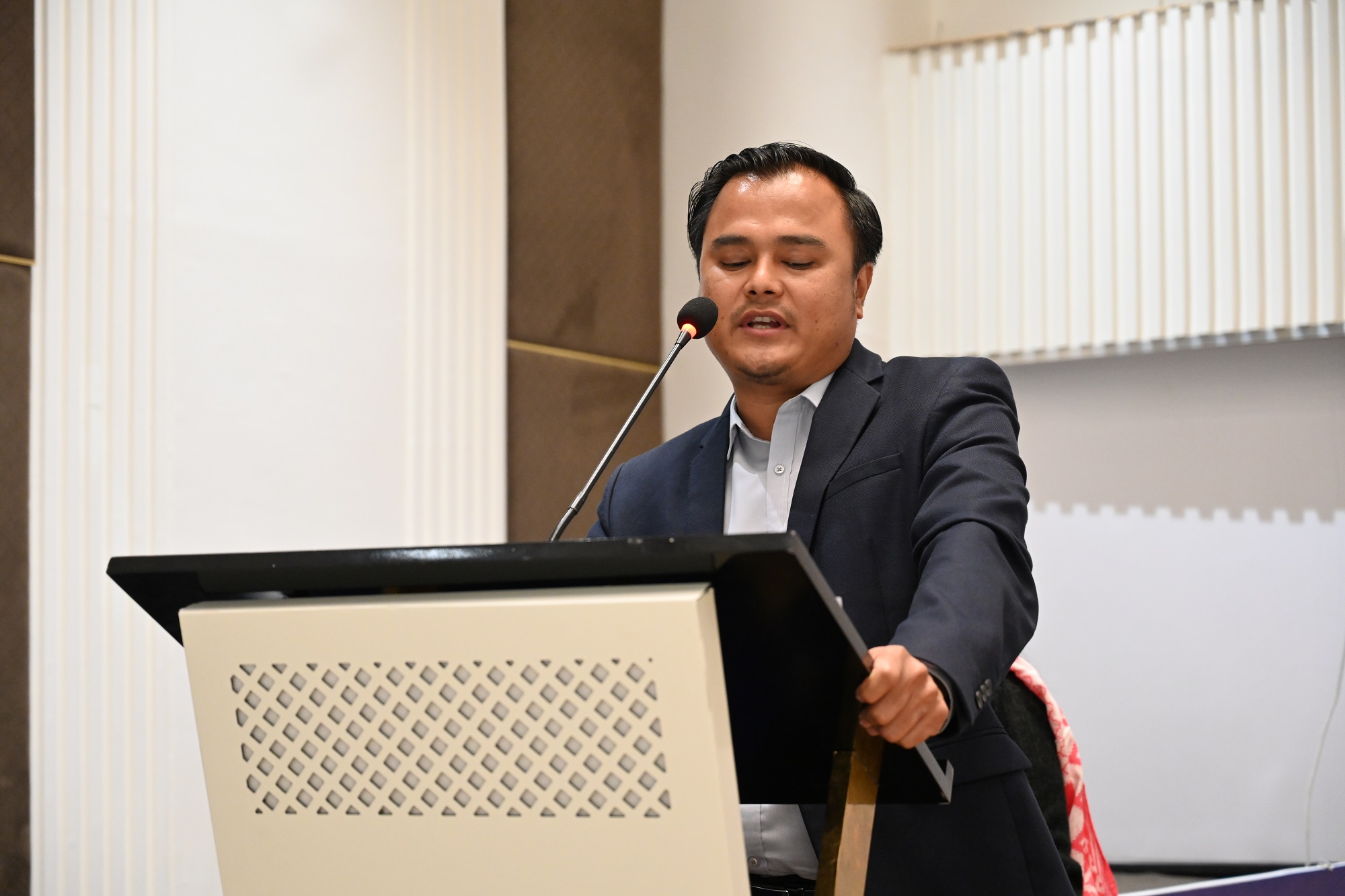Drug-resistant tuberculosis (DR-TB) ranks among the top 10 causes of death in Nepal, and claims approximately 17 000 lives each year, inflicting a substantial social and economic burden.
Long and complex treatment regimens, high treatment costs, and diagnostic challenges are some of the issues affecting Nepal's battle against TB.

A healthcare worker providing medicines to a tuberculosis patient in Bagmati Province, Nepal. Photo credit: WHO Nepal/A.Maharjan
To overcome some of these challenges, the Ministry of Health and Population (MoHP), with support from WHO, Country Office in Nepal, is spearheading a series of initiatives to transition towards a new treatment regimen, in line with recommendations of the WHO Consolidated Guidelines on Tuberculosis.
The key change in the WHO-recommended transition is the addition and prioritization of a new all-oral 6-month regimen for DR-TB. The regimen comprises bedaquiline (B), pretomanid (Pa), linezolid (L), and moxifloxacin (M), and is referred to as BPaLM; for people who are resistant to further types of anti-TB medication (Rifampicin and Fluoroquinolones), the regimen can be used without moxifloxacin (BPaL).
The shorter duration, lower cost, lower pill burden, no injection, and high efficacy of this novel regimen should enable much better treatment outcomes for people with DR-TB. It also marks a huge shift from Nepal’s current method which uses injectable medicines and a combination of 5-7 drugs, administered up to 18 months, or even longer.

A healthcare worker shows some of the many medications a drug-resistant tuberculosis patient must take for 18 months or more. Photo credit: WHO Nepal/A.Maharjan
The lesser amount of medication would also drastically reduce the total amount of pills to be taken during the course of treatment, resulting in reduced economic hardships for patients, and significantly improving the quality of life for people with DR-TB.

Dr Prajwol Shrestha, Director of the National Tuberculosis Control Center, Ministry of Health and Population, providing his remarks at a meeting, held in Kathmandu, Nepal, to enhance the skills of clinicians and program managers for the introduction of the new shorter and safer oral regimen for multidrug-resistant tuberculosis treatment. Photo credit: WHO Nepal
“Through the adoption of the newer, shorter, and all-oral treatment regimens, the National Tuberculosis Program is dedicated to reducing the burden of TB and enhancing the quality of life for individuals, which benefits not only their families, but also allows healthcare systems to dedicate more resources and time for more patients," says Dr. Prajwol Shrestha, Director of the National Tuberculosis Control Center (NTCC), MoHP.
.jpg?sfvrsn=68c556f0_4)
A 3-day laboratory training was held for lab professionals across Nepal to strengthen national diagnostic capacity for drug-resistant tuberculosis treatment. Photo credit: WHO Nepal
To support the capacity enhancement of clinicians and TB laboratory professionals for the successful introduction of the BPaLM/BPaL regimens, WHO has engaged international clinicians and lab experts through the regional Green Light Committee (rGLC) mechanism to promote scale-up of programmatic management of DR-TB.
.jpg?sfvrsn=1fb5f0a8_4)
Dr S Siva Kumar (right) from the National Institute for Research in Tuberculosis, India, facilitating a 3-day laboratory training focused on improving diagnostic capacity for drug-resistance tuberculosis for lab professionals in Nepal. Photo credit: WHO Nepal
"Nepal’s shift towards adopting a new and more effective treatment regimen for DR-TB patients is highly commendable. This simplified and effective treatment, focused on patient-centered care, will not only help alleviate the economic hardships faced by patients but also promises to revolutionize DR-TB treatment in Nepal. WHO reaffirms its commitment to stand by Nepal in this transformative journey toward better health and well-being for DR-TB patients and achieve Nepal's goal to end the TB epidemic by 2035," says Dr Rajesh Sambhajirao Pandav, WHO Representative to Nepal.
The new DR TB treatment regimen is set to be introduced in 2024.
